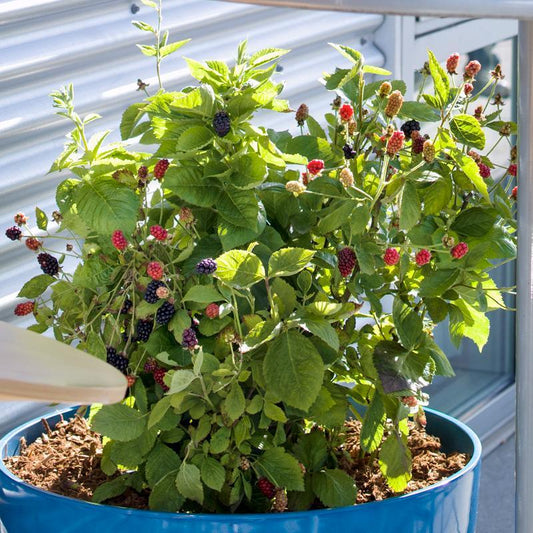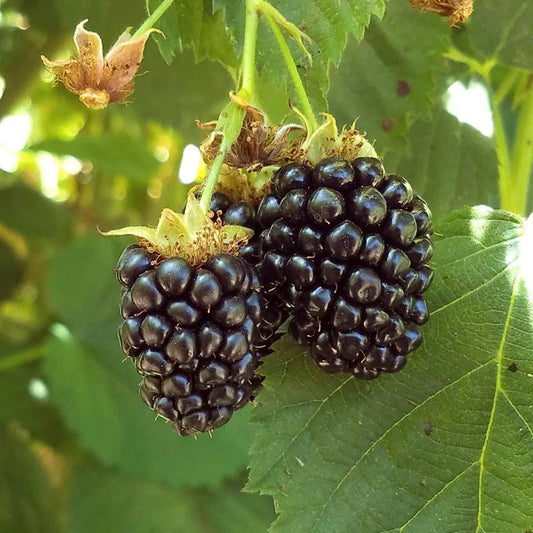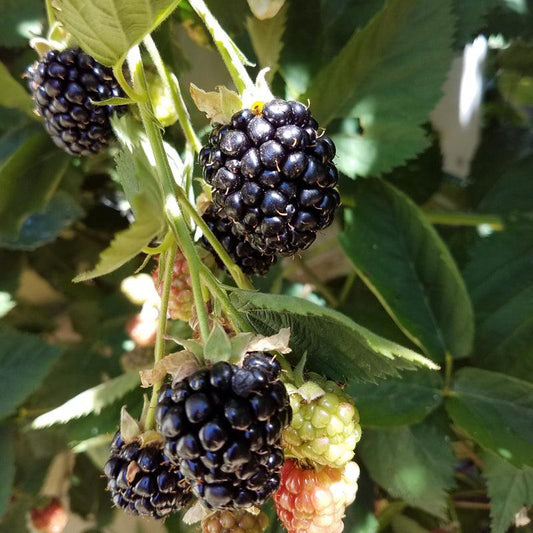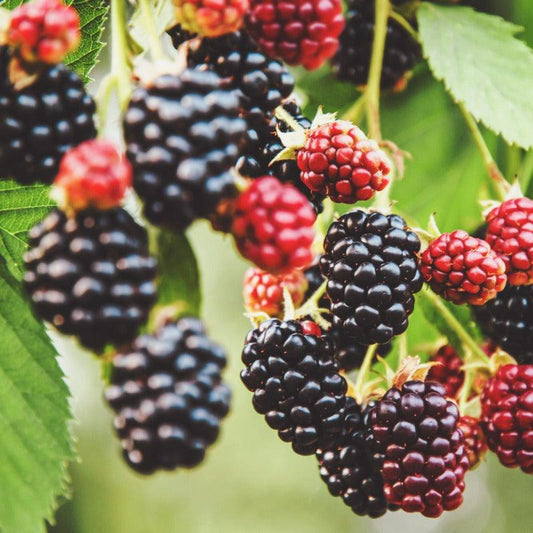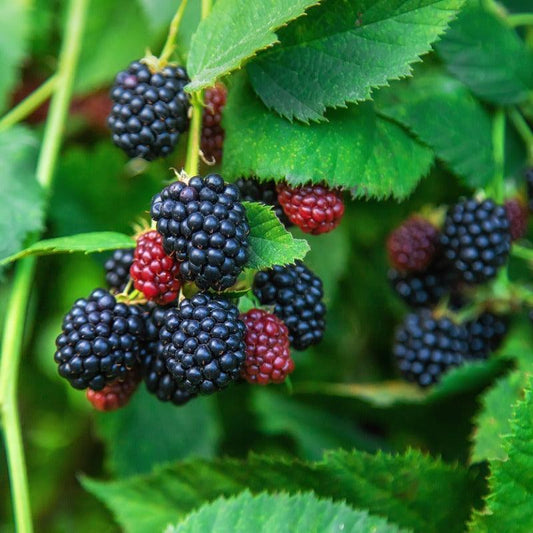Growing blackberry plants:
Looking for blackberry bushes for sale? Our organic blackberry plants are thornless, easy to grow, and a hardy addition to any garden—especially in colder climates where other fruits might struggle. With proper care, you’ll enjoy a bountiful harvest of delicious blackberries, perfect for fresh eating, jams, jellies, and other homemade treats.
Choosing Suitable Varieties:
Blackberries come in various types, each with unique traits. There are erect, semi-erect, and trailing varieties. Erect and semi-erect types need minimal support, like posts or lattice, while trailing types require more assistance. Some varieties are thornless, providing ease during berry picking.
Soil and Site Requirements for Blackberry Plants:
Blackberry vines thrive in deep, well-drained, and fertile soil with full sun exposure. While adaptable to various soil types, they do poorly in waterlogged areas lacking proper drainage. Assessing soil conditions before planting ensures optimal growth.
Planting Blackberry Bushes:
Planting typically occurs in late winter to early spring. Space plants 3 to 4 feet apart in rows with 6 to 8 feet between rows, allowing ample room for growth and easy access for maintenance and harvest. Consider purchasing bare root plants for transplantation.
Support and Maintenance:
Erect and semi-erect blackberry varieties may need minimal support, while trailing types require more substantial assistance. Regular pruning helps manage growth and encourages fruit production. Preventing tip layering, where vines touch the ground and root, helps control rampant spread.
Disease Resistance and Care:
Blackberries and raspberries belong to the same family, and while they are hardy, they require care to prevent diseases. Choosing disease-resistant varieties can help mitigate potential issues. Proper watering, mulching, and regular inspection for pests and diseases ensure healthy plants.
Harvesting and Primocane Fruiting:
Blackberries typically start fruiting in summer, offering a prolonged harvest season. Understanding the concept of primocane fruiting, where some varieties bear fruit on first-year canes, allows growers to enjoy multiple yields in a single season.
Wild Blackberries and Cultivation:
While wild blackberries thrive in some areas, cultivated varieties of organic blackberry plants offer improved flavor, larger fruit, and greater disease resistance. University breeding programs—such as those at the University of Arkansas—have developed exceptional cultivars suited to a wide range of climates.
Growing organic blackberry plants, especially the easy-to-grow, thornless varieties, involves understanding their root systems, providing proper spacing, and offering the right support depending on the plant type. Whether trailing or erect, thornless blackberry plants are a low-maintenance option for gardeners who want to avoid the hassle of thorns. Their adaptability, delicious fruit, and potential for multiple yields make them a valuable addition to home gardens and orchards.
If you're looking for blackberry bushes for sale, focus on varieties that thrive in full sun and well-drained soil. With proper care and attention to growth habits, you can enjoy a generous harvest season after season. Many of the blackberry bushes for sale today offer strong disease resistance and excellent flavor—especially those developed through university research programs.
Check out our popular Blackberry Growing Guide for more information.
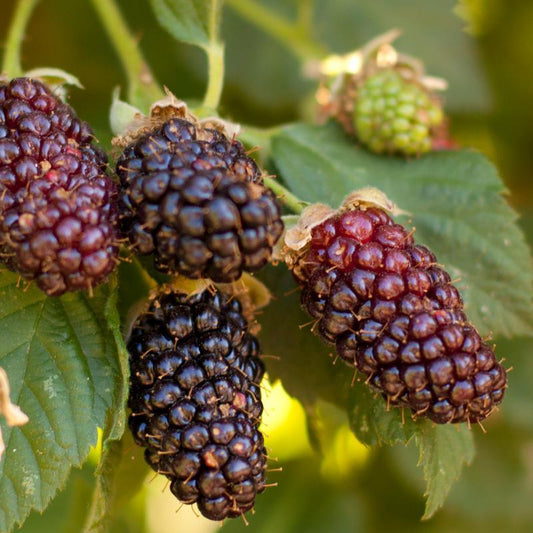 Sold out
Sold out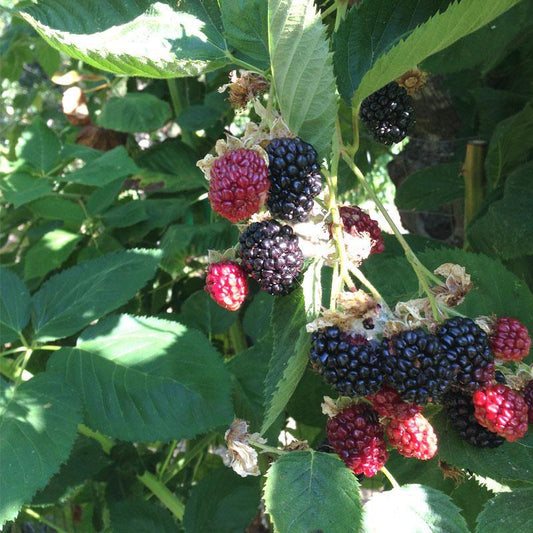 Sold out
Sold out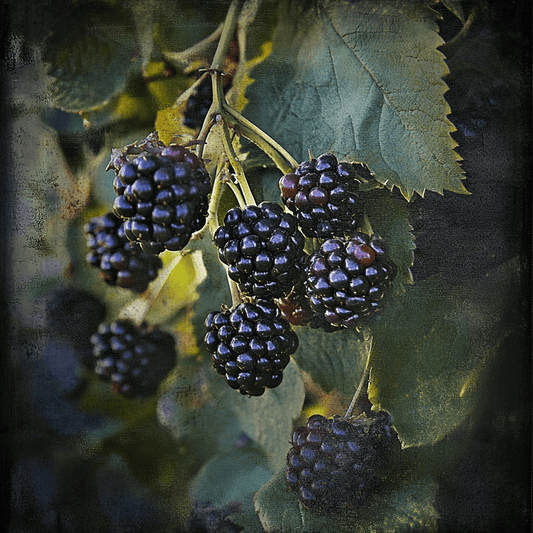 Sold out
Sold out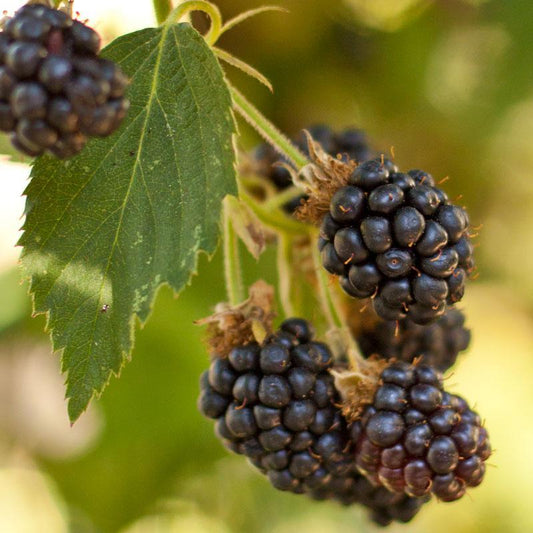 Sold out
Sold out

